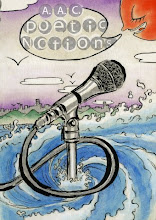I came across an article a few days ago detailing a new drug approved by the FDA. It is a retroviral drug and it is meant to benefit those with little money and cannot afford the more exspensive drugs on the market. This is a pleasing update in the ongoing fight against HIV and AIDS. Let's continue this fight until we have a cure or we eradicate this epidemic from this earth.

New AIDS Pill to Treat People in Poor Countries
By DONALD G. McNEIL Jr.
Published: July 6, 2006
The Food and Drug Administration has approved the first 3-in-1 antiretroviral pill for use by the American-sponsored plan for AIDS treatment, something that the White House's acting global AIDS coordinator said yesterday should greatly improve treatment for AIDS patients in poor countries.
Although it is not yet clear how much money it will save, having patients take only one pill twice a day "should facilitate better therapies and better adherence," said the coordinator, Dr. Mark R. Dybul.
The agency posted the approval of the drug on its Web site on Friday evening. It approved the 3-in-1 pill, made by an Indian generic drug company, for patients in countries helped by the President's Emergency Plan for AIDS Relief.
Under that plan, the United States is now the largest provider of antiretroviral drugs in the world, paying for treatment for 561,000 patients in Africa, Asia and the Caribbean.
The Global Fund for AIDS, Malaria and Tuberculosis, the second-largest provider, pays for about 541,000 patients, Dr. Dybul said, although there is some overlap in countries where both agencies work. (The United States also pays one-third of the Global Fund's budget.)
The new pill, made by Aurobindo Pharma of Hyderabad, India, combines three common first-line drugs, AZT, 3TC and NVP, which are also known as zidovudine, lamivudine and nevirapine and sold in the United States as Retrovir, Epivir and Viramune.
Dr. Dybul said he was also pleased that the new pill did not contain D4T, also known as stavudine and Zerit, which is another common first-line drug, but somewhat more toxic than the others.
In poor countries, where it is harder to do frequent blood and liver tests, toxicity can be harder to control.
The plan Dr. Dybul runs, known as Pepfar, was created after President Bush's announcement in his 2003 State of the Union address that he would spend $15 billion over five years to fight AIDS.
At the time, many Bush administration critics feared the money would be reserved for expensive American and European brand-name drugs. But, defying those expectations, the program in May 2004 began buying generics and now pays for 24 generic formulations, including liquid solutions for infants. Also, the major Western companies dropped their prices for poor countries, sometimes as low as the prices of generics.
However, rather than subscribing to the World Health Organization's drug-approval process, the president's program requires separate F.D.A. approval, which has caused delays, even though the agency created a fast-track process and waived its large fees.
No one from Aurobindo could be reached for comment yesterday, but the company's Web site carried an announcement, dated Monday, saying it was "delighted to share" that its drug had won F.D.A. approval.
The first 3-in-1 antiretroviral pill was triomune, from Cipla, another Indian generic company. It won World Health Organization approval in 2002 and is used by nearly 400,000 patients whose drugs are bought by Unicef, Doctors Without Borders and other donors.
Dr. Yusuf K. Hamied, the company's chairman, said yesterday that he hoped for F.D.A. approval shortly for several Cipla products, including triomune. "Pepfar came on us out of the blue," he said. "We were concentrating more on the W.H.O., and we were a little slow catching up." Nonetheless, he praised his rival Aurobindo, calling it "a totally kosher company," and adding, "As an Indian, I'm proud of them."

1 comment:
That's pretty cool. I'm glad there is progress.
Post a Comment